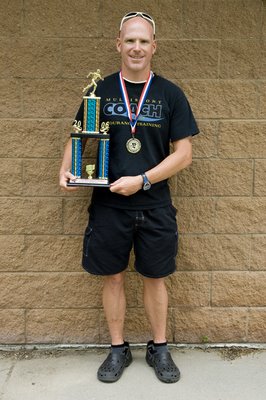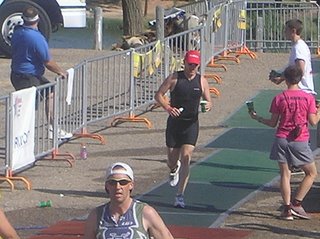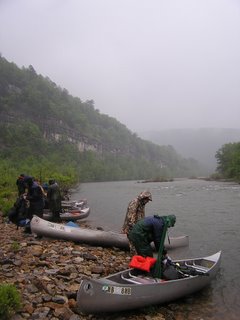
Hello Fans -
First my apologies for the long absence from posts. Life is just crazy with busyness. Many great things going on in life and not enough time to get them all down in this forum.
Well I made it - yes 50 miles of running under my own power! After 9:10 mins I made it to the finish line of my first official 50 mile ultra marathon!!!! My overall goal was to beat the 11 hour barrier so that I could qualify for the Western States 100 in late June of 2007. So I met that goal. But being the competitive athlete that I am I was hoping to break the 8 hour mark. I was in that range until the 26 mile mark and I knew my second half was going to be slower. Hey - that's what goals are for - right?!?! Makes you push your ability!!
So here is my race recap:
Many thanks to Jeff Shannon for his support during the adventure. Jeff is a local Omaha athlete who I coached to his first triathlon season in 2006. He joined me on a few of my long training runs and made the 50 mile event much more enjoyable!!!
Jeff and I headed down to Blue Springs (just east of Kansas City) the day before the event. Arriving in time to register and get to the event site with enough daylight to ride a portion of the course and check out the lay of the land. After getting some dinner at locating the hotel, organizing all the gear for the morning I finally hit the sheets at 10pm. A bit later than planned, but it was only 50 miles ..... correct.
I planned to get started at 5am. The official start was at 6am, but the race director allowed for a start time earlier on the honor system. I wanted to start early for a couple of reasons - 1) it was going to get warm in the afternoon and 2) I wanted to get back for a concert that evening in Omaha.
So - I woke up at 2am to fuel for the day 3 Ensures and some oatmeal. Went back to bed and got up at 3:30, took a shower and we headed to the event site. Yes - the first to arrive, but only by 10 mins or so. Jeff was my official pacer, race director had him register. Jeff and I headed out on the first 13+ mile out and back in pitch darkness and fog. Thanks to Jeff (on mountain bike with headlamp) I could see the trail. He took some great video of me, which I hope to have up on my site soon. I have to tell you those first couple of hours were the best! Even thought the view changed little, it was very pleasant. My goal for pacing was to keep my heart rate limited at zone 2 with a pace no slower than 9:30. I under estimated the first out and back with fuel, but felt I did well and adequately modified my hydration / nutrition plan to accommodate. My body felt good.
After the first 13+ mile out and back I was back at my vehicle, for refueling and then off on short 4 mile out and back. Once back to the vehicle I was off on my second 13+ mile out and back (same course as the first), but this time on my own. Even with the sun up, the scenery passed by slowly. It was a gorgeous day with some great fall colors, but the mental challenge started to set in. I made it to the 26 mile mark at about 10 mins slower than my recent training runs, but I took that as a good sign in that I was not overdoing it. As I came in for my last major stop at the vehicle, I changed shorts, top, socks and shoes. Jeff road and ran parts of the last 13 mile out and back. I felt real solid up to about 43 miles than the wheels came off, legs trashed, feet hurt, stomach a little crampy. I was ready to be done. The last 7 miles I was reduced to a run / walk combo! Jeff was real encouraging at this point and knew when to be quiet.
Those last 10 miles were actually my favorite. When it hurt just to exist. Hurt, to walk, hurt to run, hurt to stop! Money can't buy that feeling!! So after 9 hours and 10 mins the finish approached. No fan fair, very few people and one nice work runner and it was over almost as silently as it begun. The difference - was all on the inside. As most athlete's will tell you it is mostly mental. And this was no different. I trained for, started and finished this event knowing that I would complete the task. I never once considered not finishing. Just keep moving, little by little, nice and easy, enjoy the suffering. It will be over as quick as it started. That is the mentality it takes. Believe that it is possible and it is.
So as I put together my application for the Western States 100 ultra! That is the view I have! With Gods grace and solid belief in that it is possible - I will experience the pain, suffering, joy, sadness that only 100 miles of running can offer!
Live the Journey!!!
Ultra Marathon Kevin








